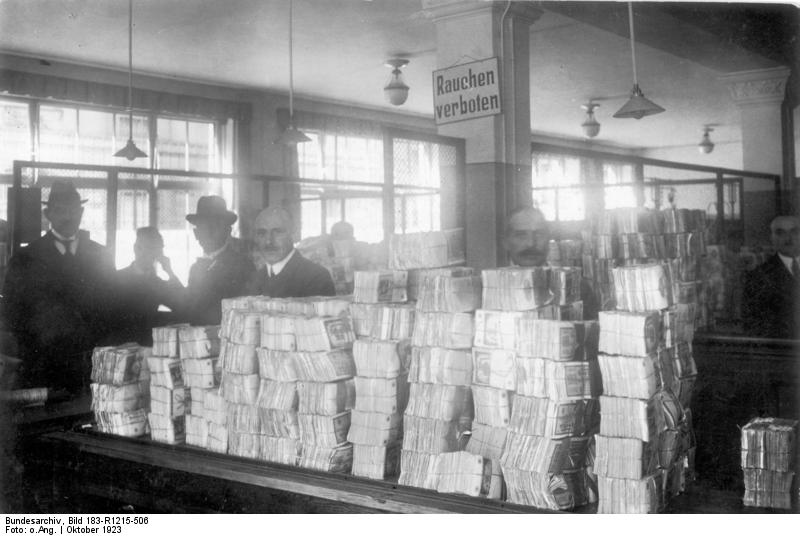the weimar republic and reparationsBy the end of World War I, Germany was exhausted. Even with a brokered peace with Russia in 1917, Germany was not able to marshal the forces it needed to ensure victory on its western front. Estimates by the U.S. War Department in 1924 put the total number of German casualties - including dead, wounded, prisoners, and missing) at over 7 million, well over 10% of Germany's total population. Of that number, estimates are that about 2 million were killed.
As Germany sought peace after the war, German leaders did not anticipate the harshness of the conditions for peace. They had read American president Woodrow Wilson's "Fourteen Points," and it was this document that they believed would form the foundation for peace negotiations. They were wrong. |
Photo: Reichsbank, Berlin
|
terms of the treaty of versaillesLand lost, military restrictions, War Guilt Clause
|
shifting the blameSocialists, Communists, Jews
|
economic hardshipThe German Hyperinflation from the PBS series "The Commanding Heights" Hyperinflation, Unemployment, Balance of Payments |

